We faced a dilemma while planning our next route. We had two choices: we could either take the coastal road or go through the mountains in Liberia. The coastal road is more enjoyable, as it passes through the jungle and has much less traffic. However, we are concerned because I have been feeling a bit weak and sweating more than normal, and after the 30 mosquitoes bite in the church, I’m more concerned about one os us getting malaria in the middle of the jungle. The coastal route is also more physically demanding than the national road. Recently, Matthias, the German cyclist, took this route and reported that it was challenging. He mentioned it was hard to carry his bike for long stretches at times, which raises concerns for us as well. Pushing or lifting our 40 kg bikes for an extended period would be very challenging. Therefore, we have decided to take the national road.
The first 30km went well, the midday break, we got invited for a fresh coconut…
liberian Hospitality is the best since Morocco.
We continued on the newly still not opened road. perfect condition with little tail wind closing to sunset, we overheard someone shouting from faraway…
we stopped and cycled back to meet Anikka and Mano.
Annika, originally from the Netherlands, and Mano from Liberia moved back to Liberia after living in the Netherlands to realise their dream of starting a business, “Block Factory,” and to support children and improve the school system. We wanted to meet inspiring people like them on our journey, so we decided to spend the night and pitch the tent at the factory. We enjoyed the best dish in Liberia, followed by a refreshing hot bucket shower.
Next day, after they insist on changing my starting to fall out shoes with new ones, we went to a school, bringing our bikes fully loaded with us to tell the children about our cycling story and my story about privileges and realising the dream.
this is not a typical Liberian school. It’s bullied and supported by a successful Liberian surgeon that lives in the USA.
Again, a private initiative trying to pull up the education system and help children, while the politicians are busy siphoning money in their pockets.
After visiting the school and saying goodbye, we continued cycling, but it’s already midday… and I’m feeling miserable after cycling for just 15 km.
trying to charge to the phone again, and finding some food was a challenging task again.
we are struggling with food since Guinea. and I can’t eat or sea Sardine canes anymore.
The Firestone Rubber Plantation in Liberia, established in 1926, is one of the world’s largest rubber plantations. Located in Harbel, it covers over a million acres and has played a significant role in Liberia’s economy. The plantation is divided into sections known as divisions, each managed separately with its own housing, schools, and medical facilities for workers. Laborers tap rubber trees to collect latex, often working under strict quotas.
arrived to one divion and didn’t knew first what dose it mean at all to be and live in divion.. we tried to find Chef of the village to allow us to put the tent near the school.
but he’s not here, and we are not sure if waiting will assure us a sleeping place for the night.
no body is really willing to help but then we knew people are afraid to lose the only job that provide them between 50 USD an 100 USD if they talked with us.
Two girls brought us to see Pastor Joshua, who teaches at a school 5 km away but hopes to reopen the divion school. He helped us find the security guard, who hesitated because he was afraid and had to call his boss. The boss arrived on a motorcycle and also had to make a call to his boss. We then had to wait for the higher boss to get permission to put the tent somewhere. Eventually, they agreed to let us sleep by the ”permanently” school entrance.
The people nearby were friendly; they sat close to us while we prepared our tent. Later, we talked with them, and the only subject they seemed focused on was the reopening of the school. They tried their best to convince Firestone to support the reopening, but they received no response.
after an emotional Pray we continued early morning around 9.
workers extract rubber through tapping, making shallow cuts in the bark of rubber trees to release latex. The latex drips into small cups attached to the trees and is later collected in larger containers. It is then processed into rubber sheets or other products for export. Workers tap trees daily, covering long distances and meeting strict quotas.
The next stretch is a 35 km stretch of unpaved rollercoaster road. Around 12 PM, Sandra is always ahead of me; I have no energy and can’t concentrate. We decided to take a break. I set up my hammock and went into a deep sleep for about half an hour. When I woke up, I decided to do the rapid test we received from Anika and Mamo.As I pricked my finger, the blood came out, and I almost fainted. The test came back positive. We did another one, and it was also positive. Now I have malaria in the middle of the largest rubber tree forest on earth, in a country with one of the worst health systems on the planet.
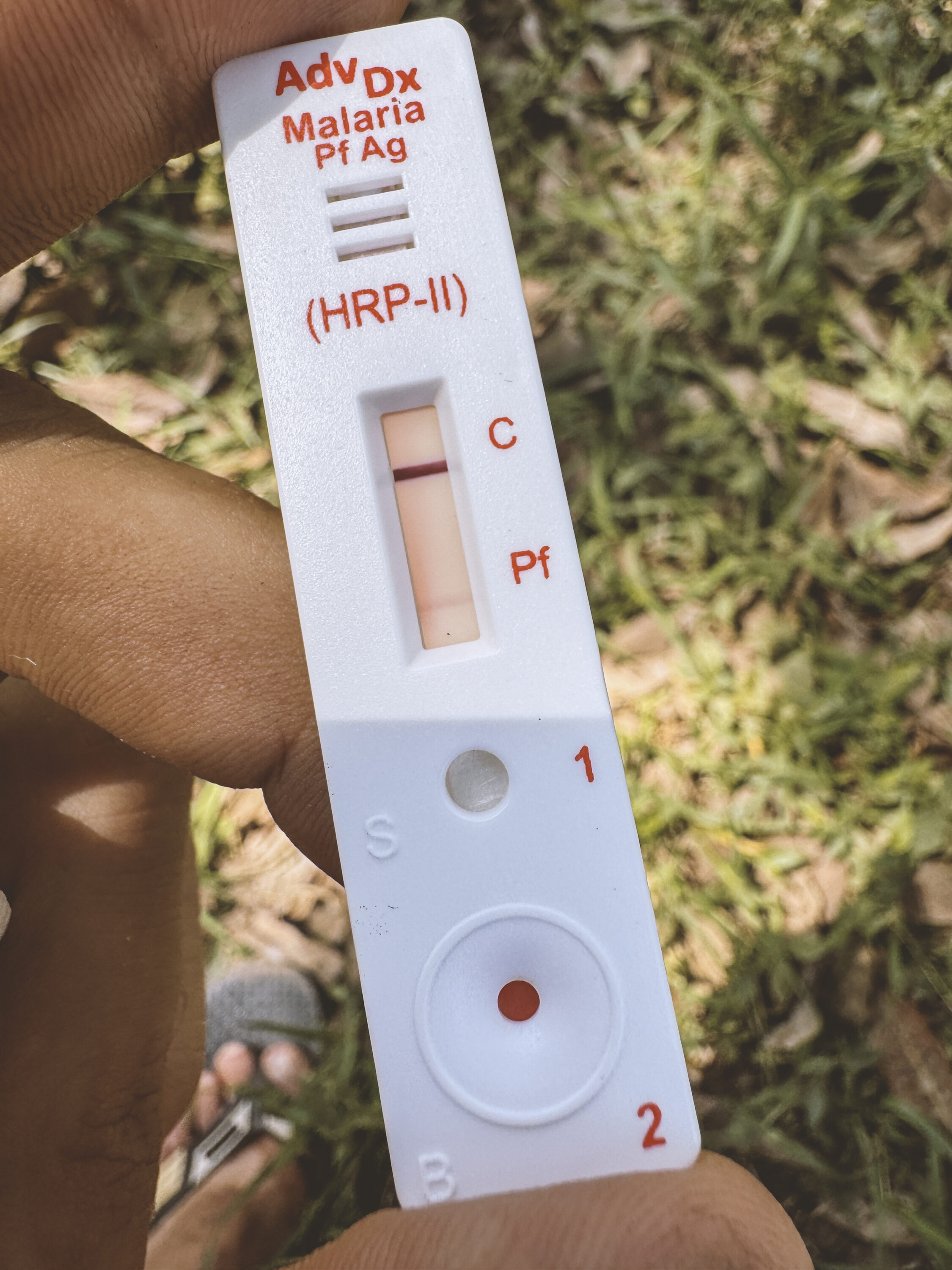
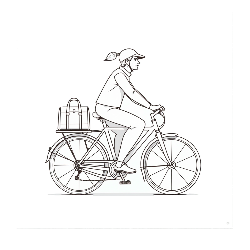
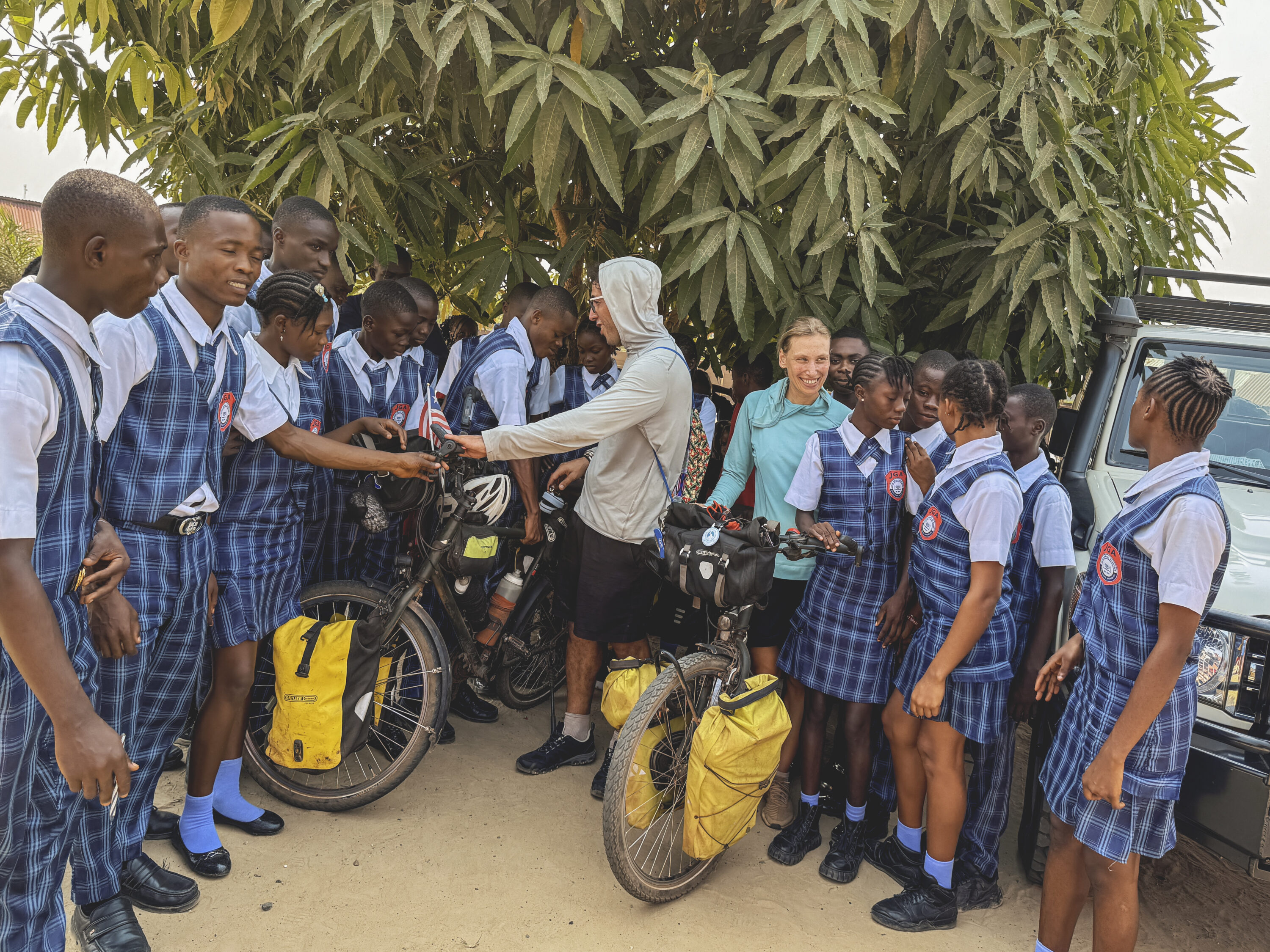
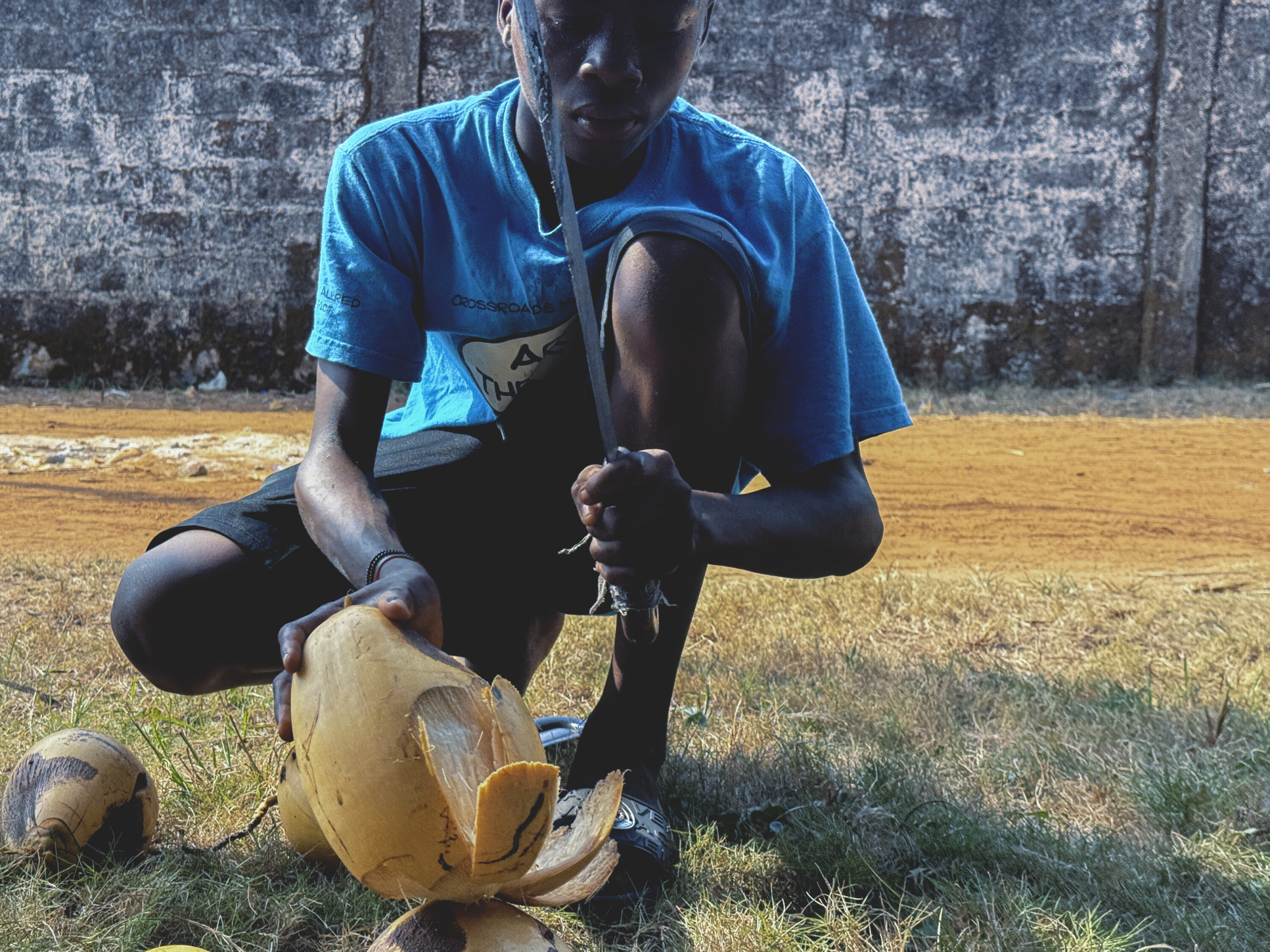
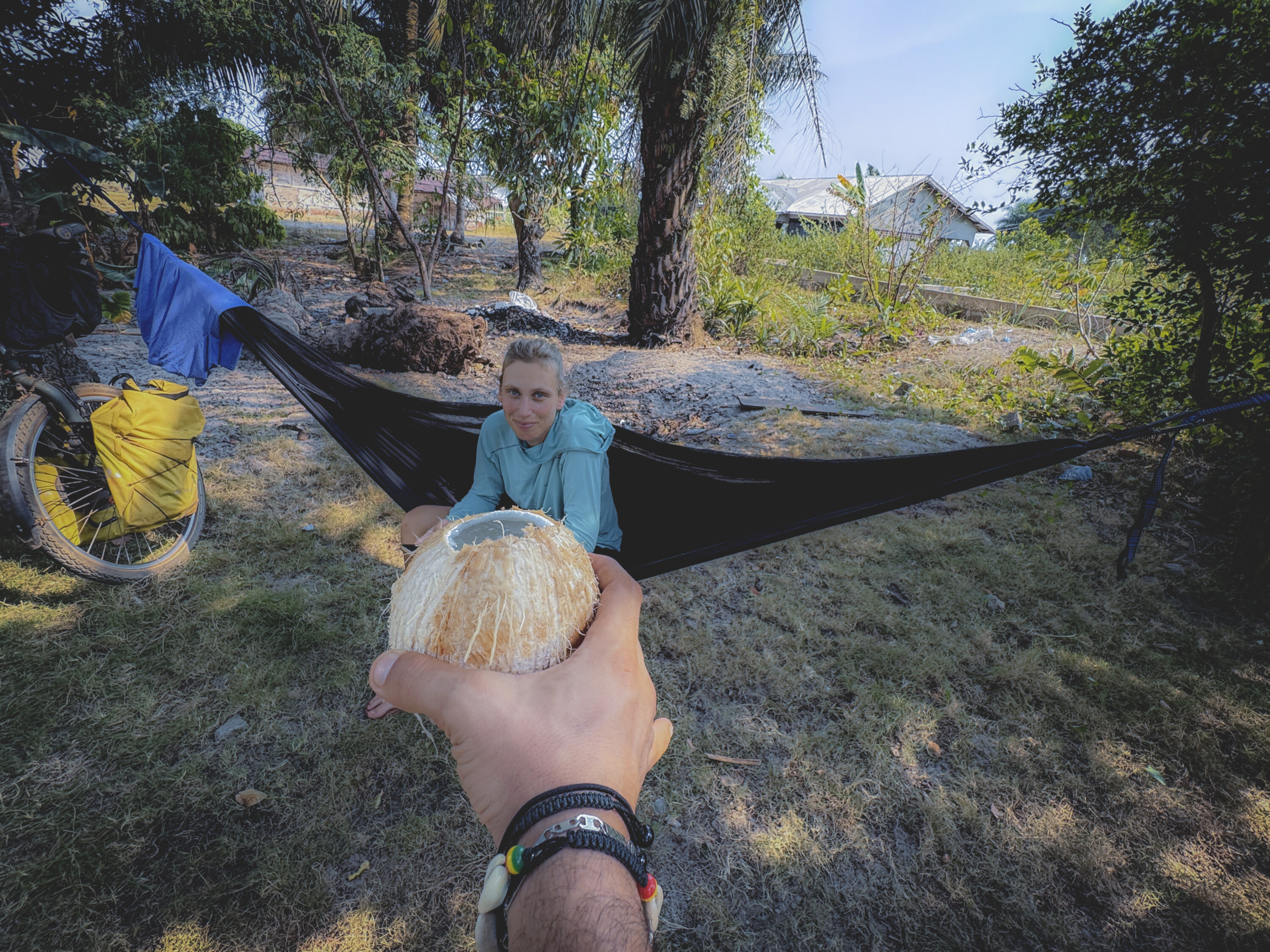
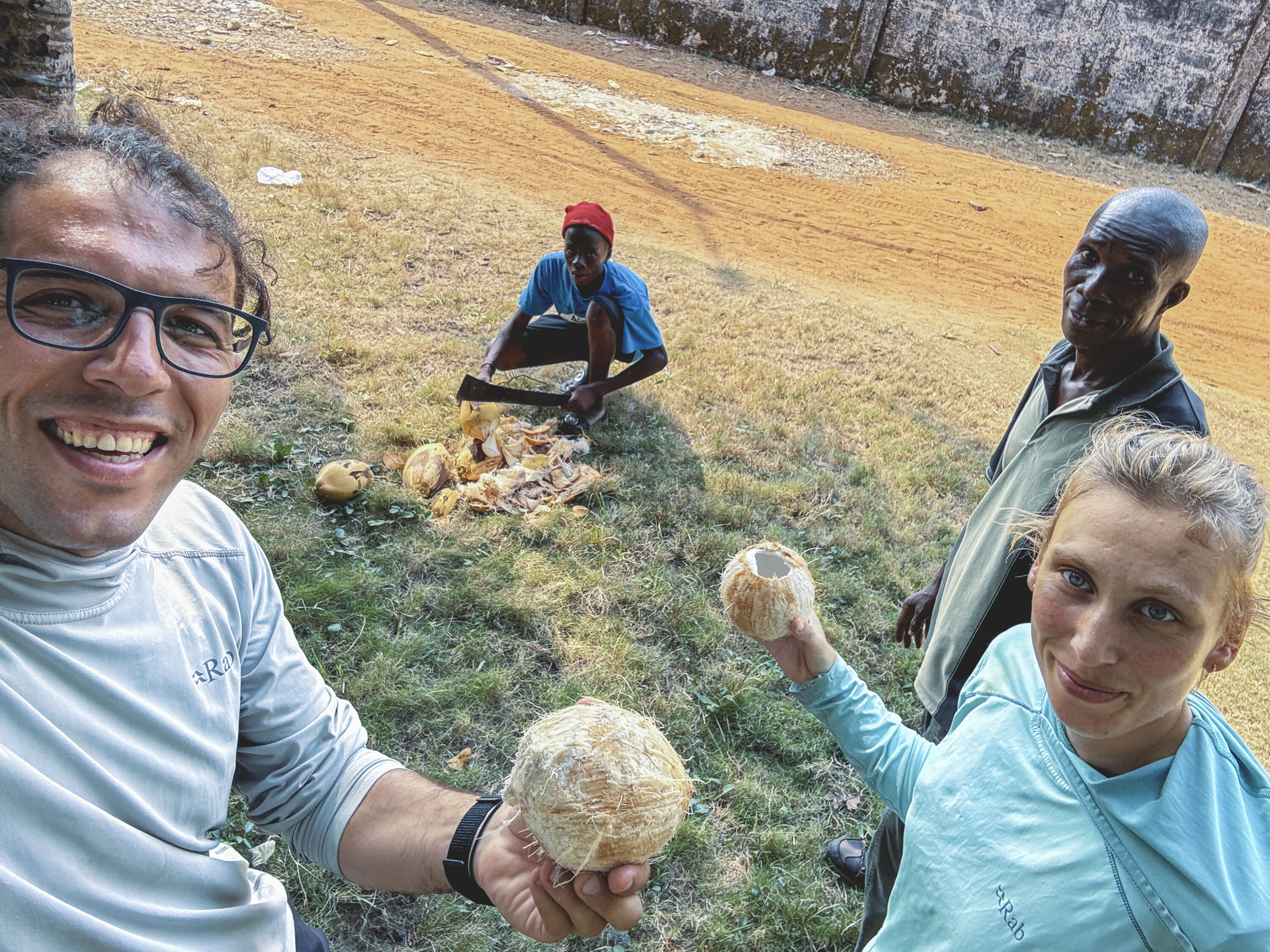
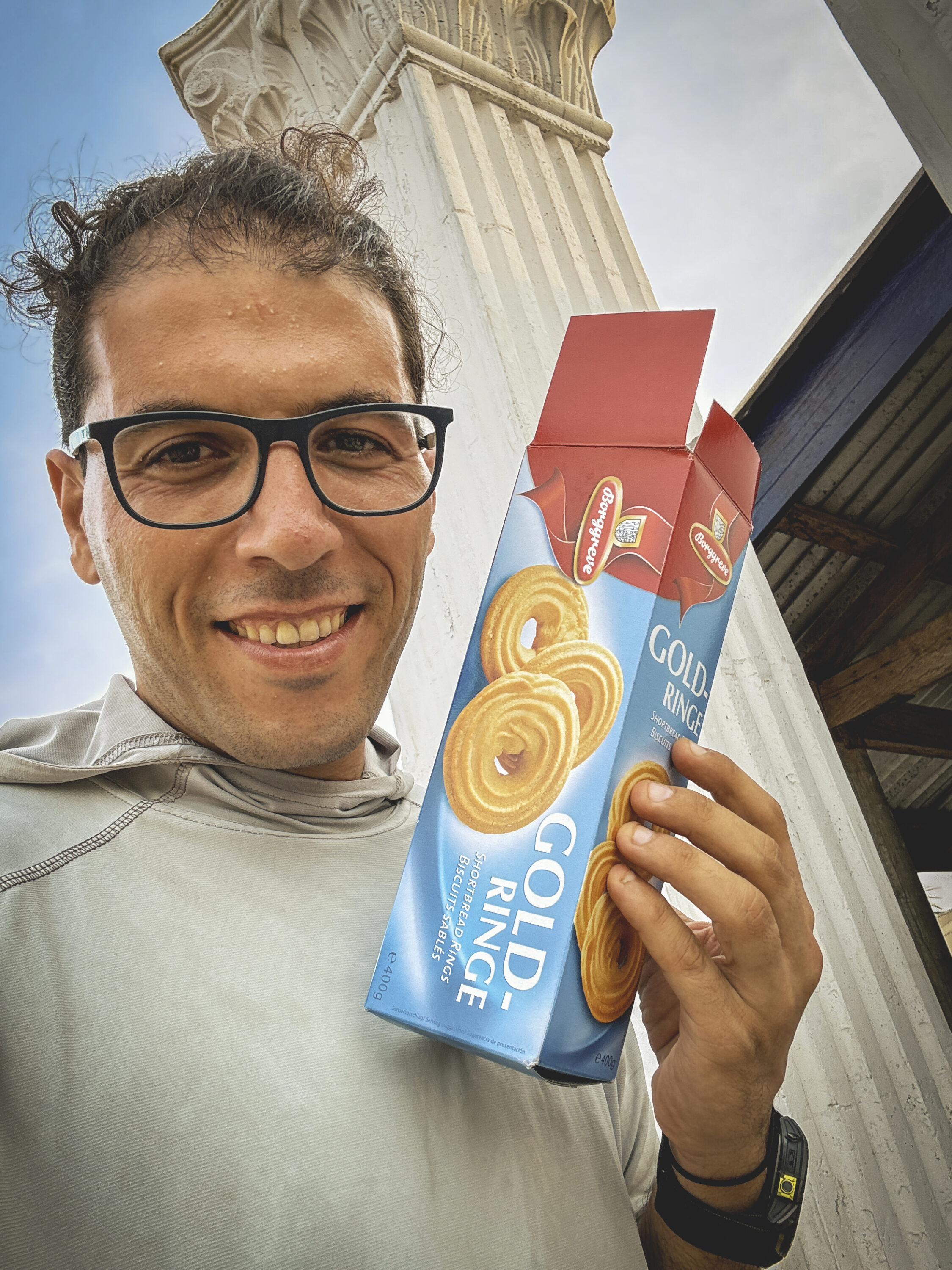
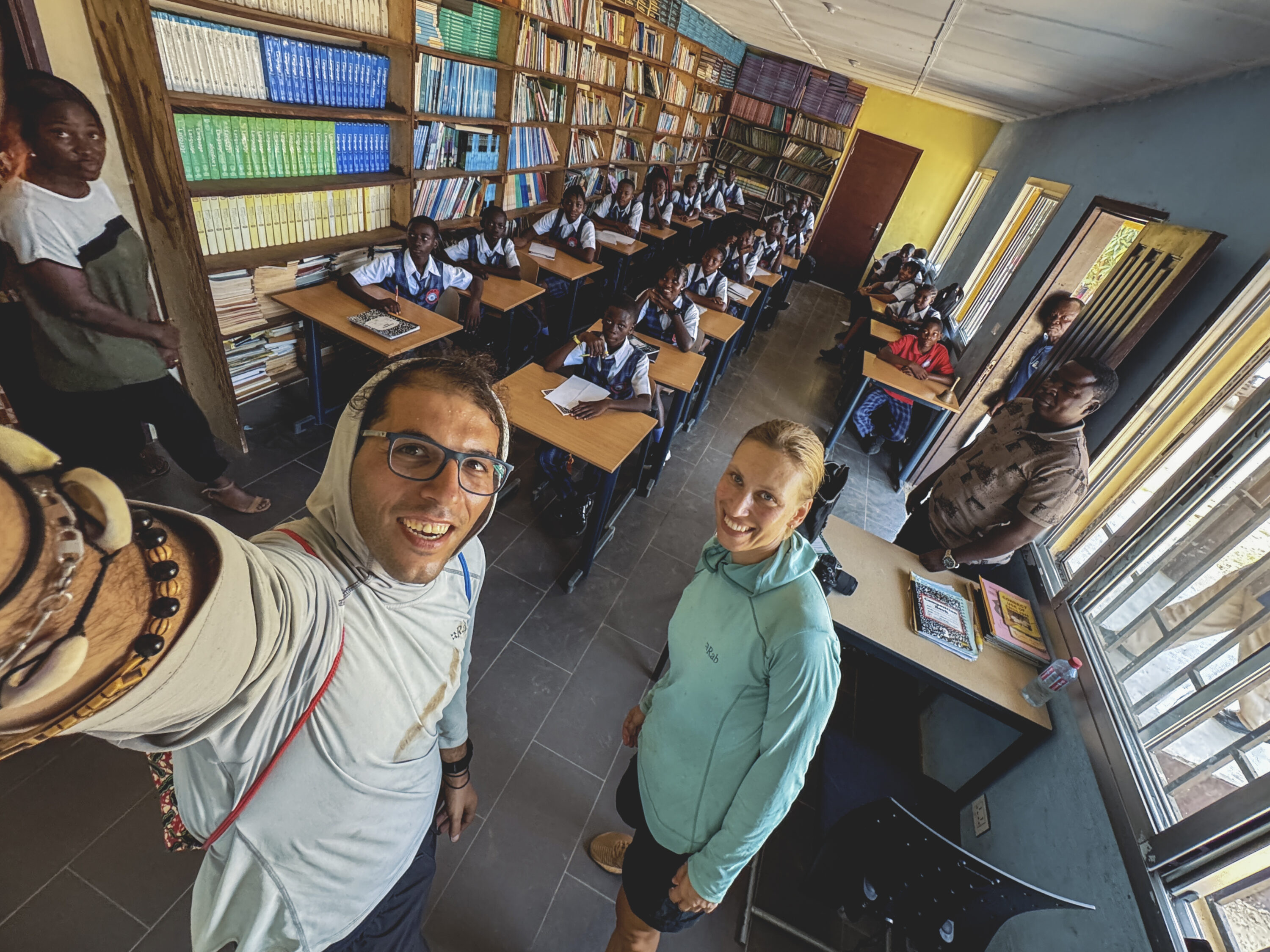
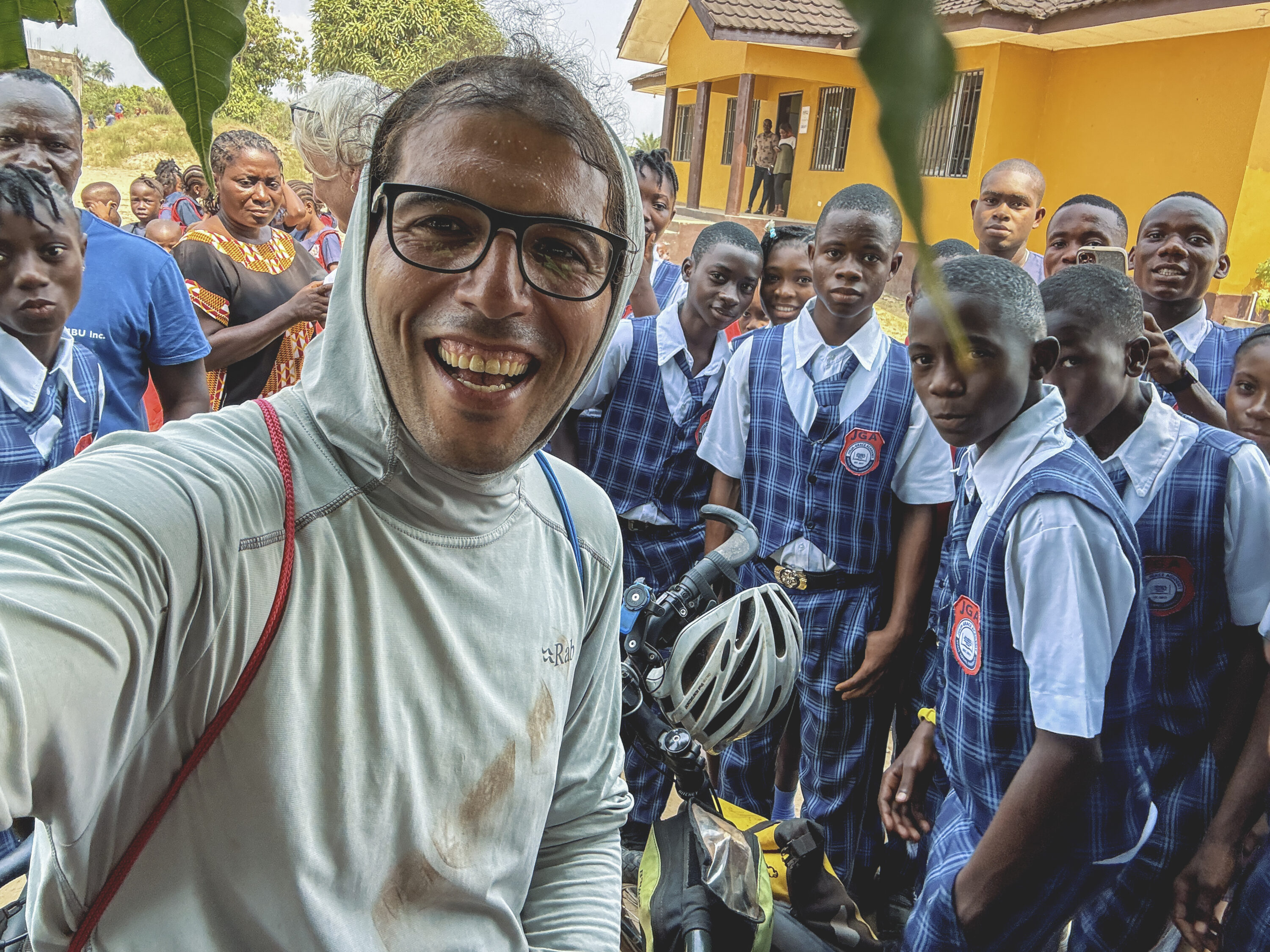
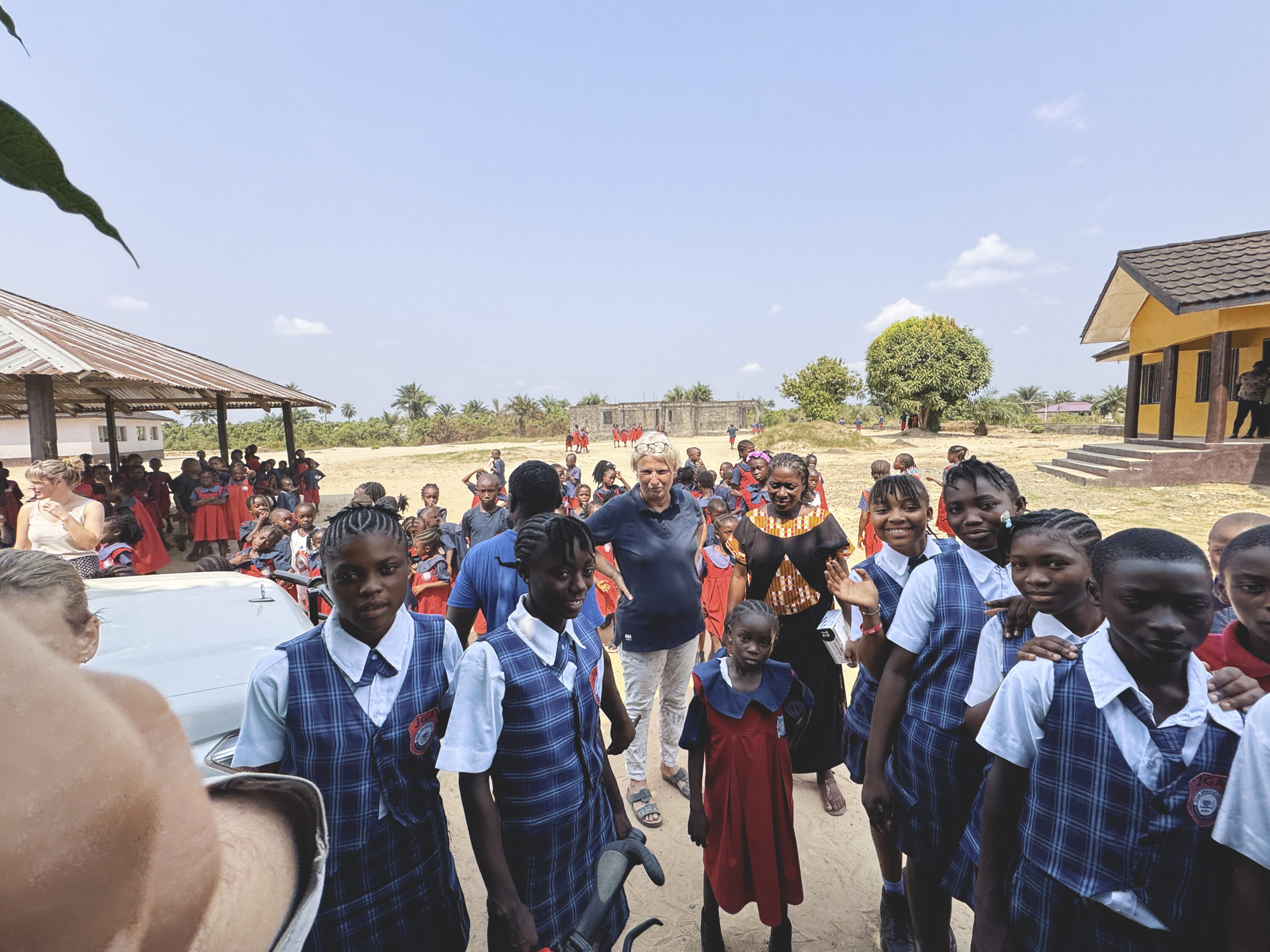
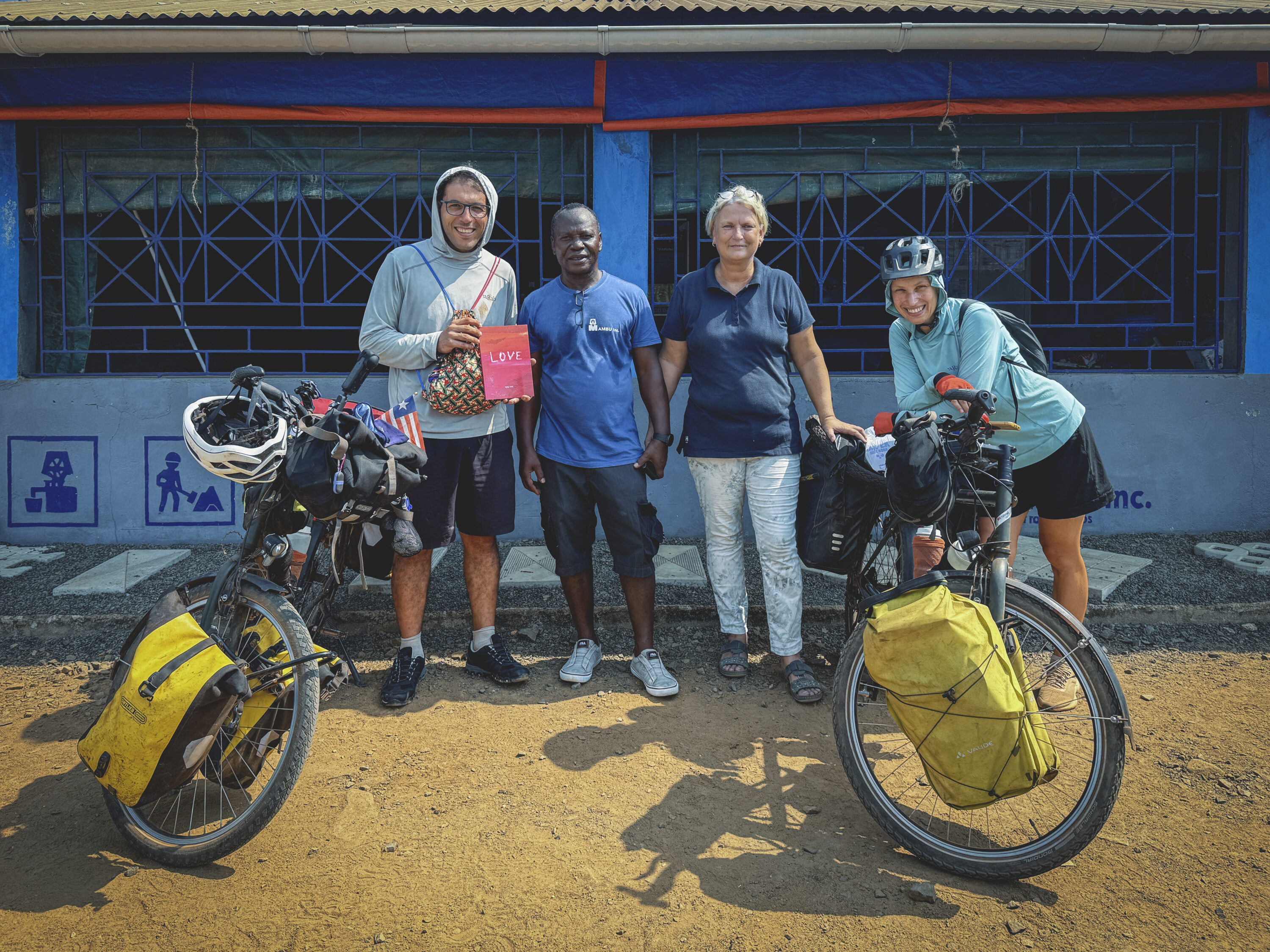

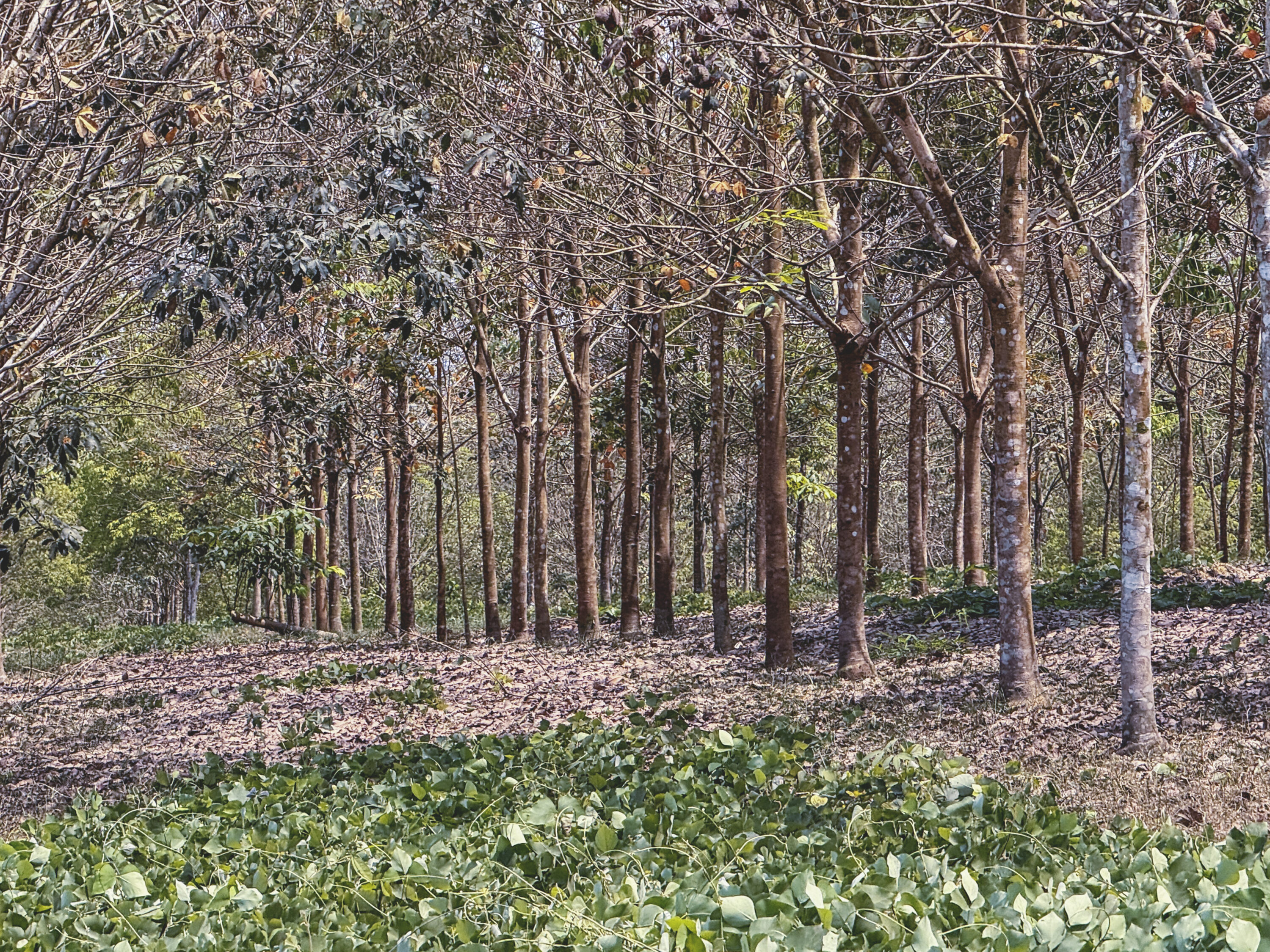
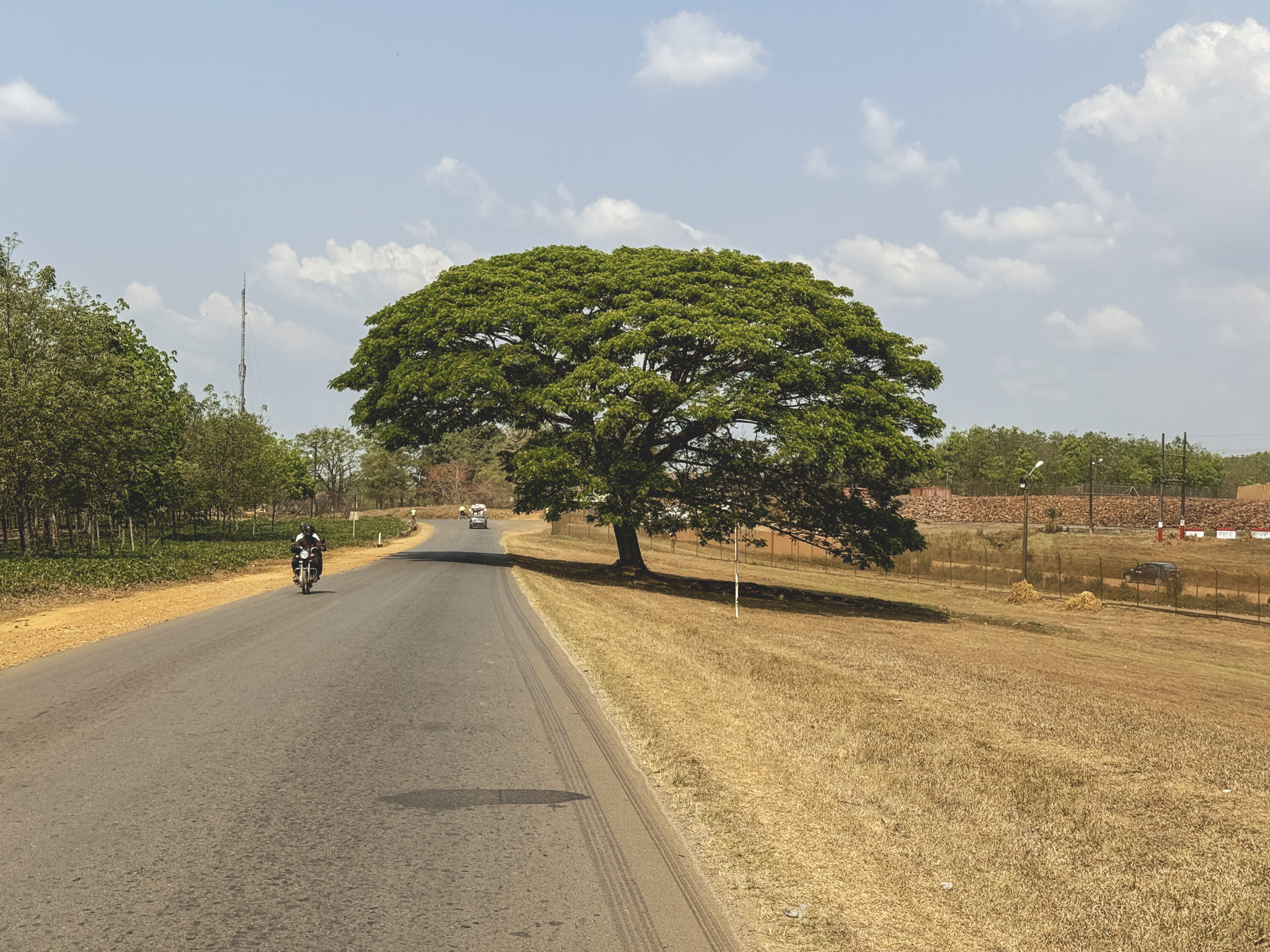
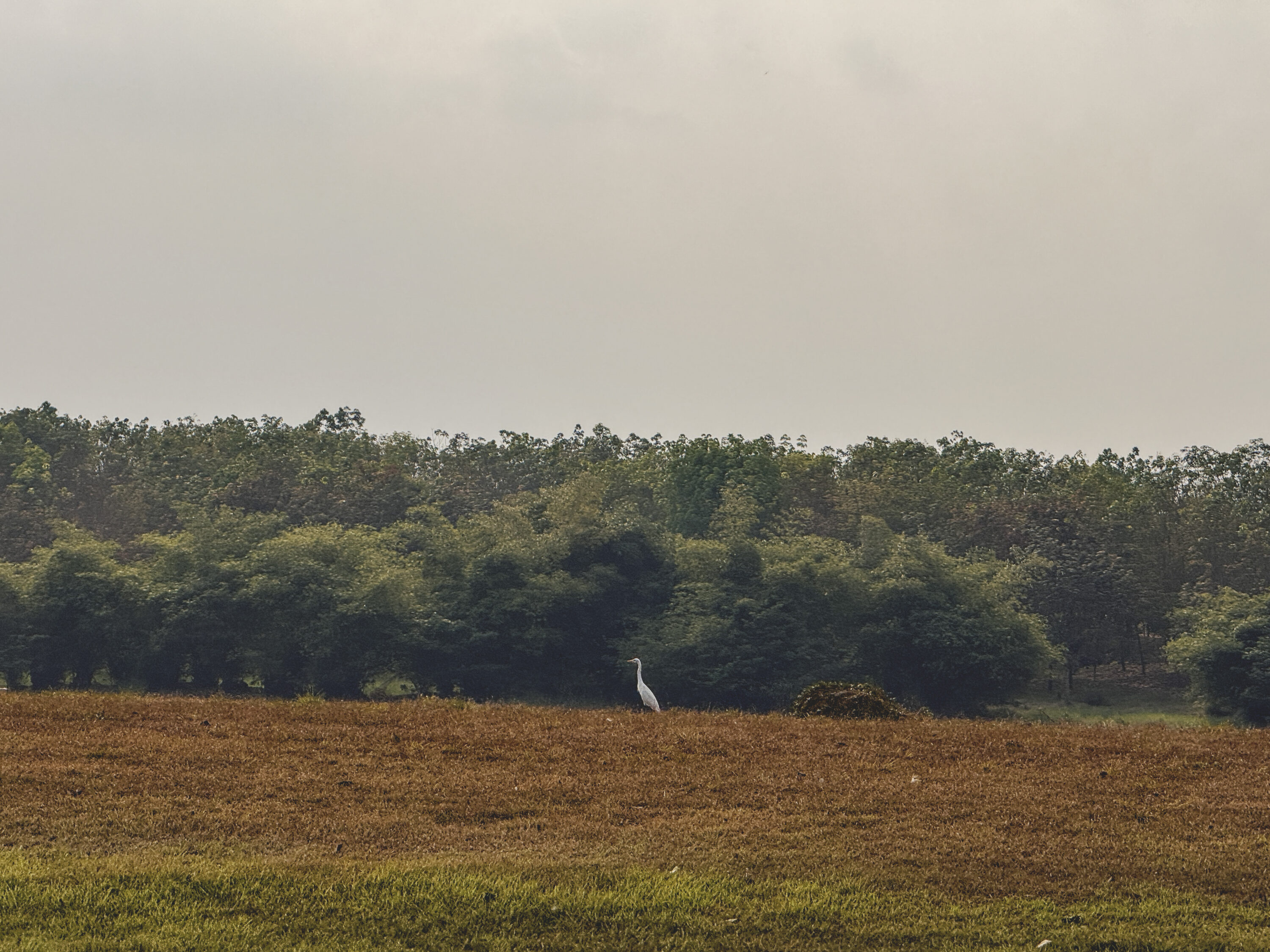
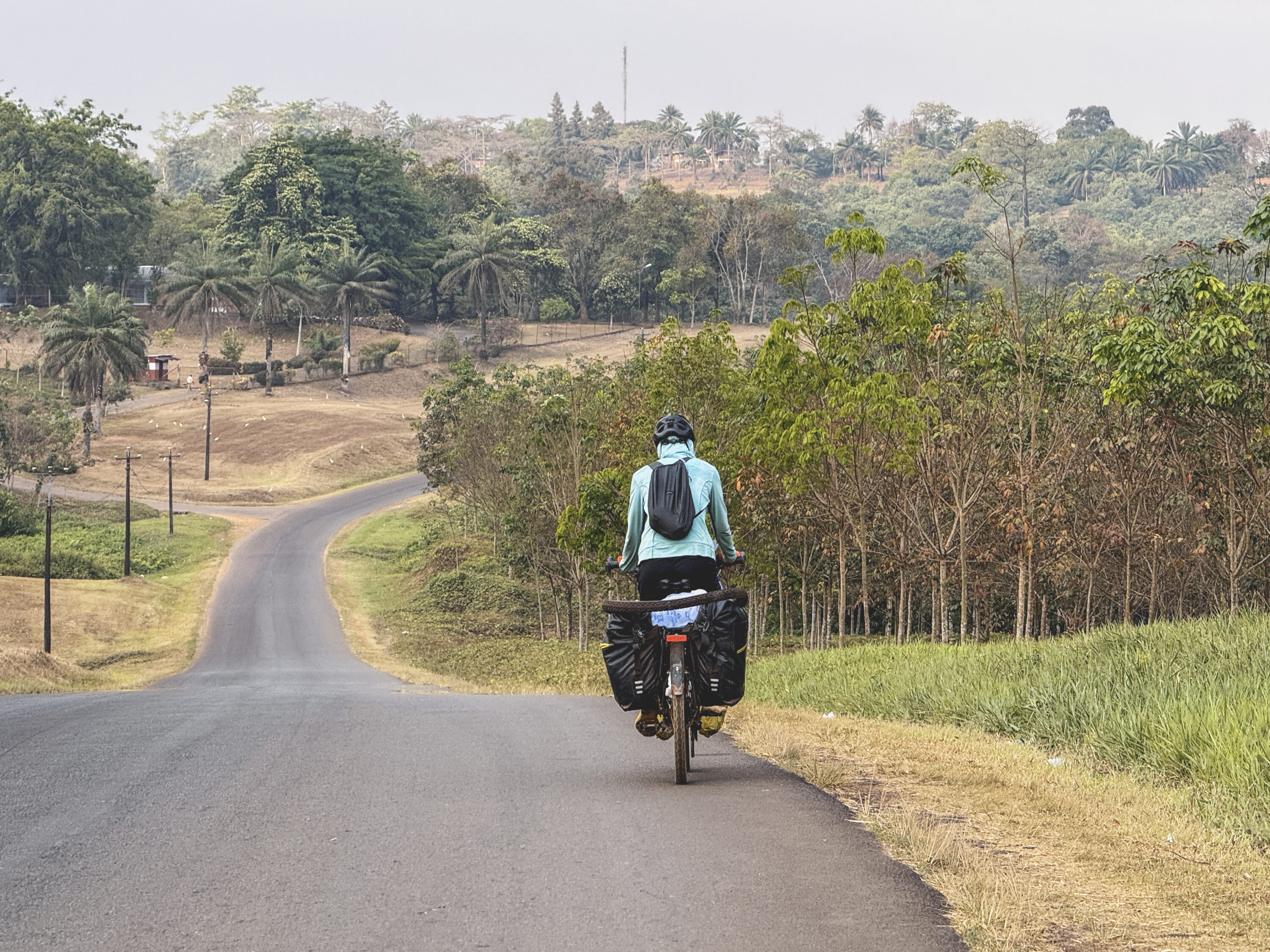

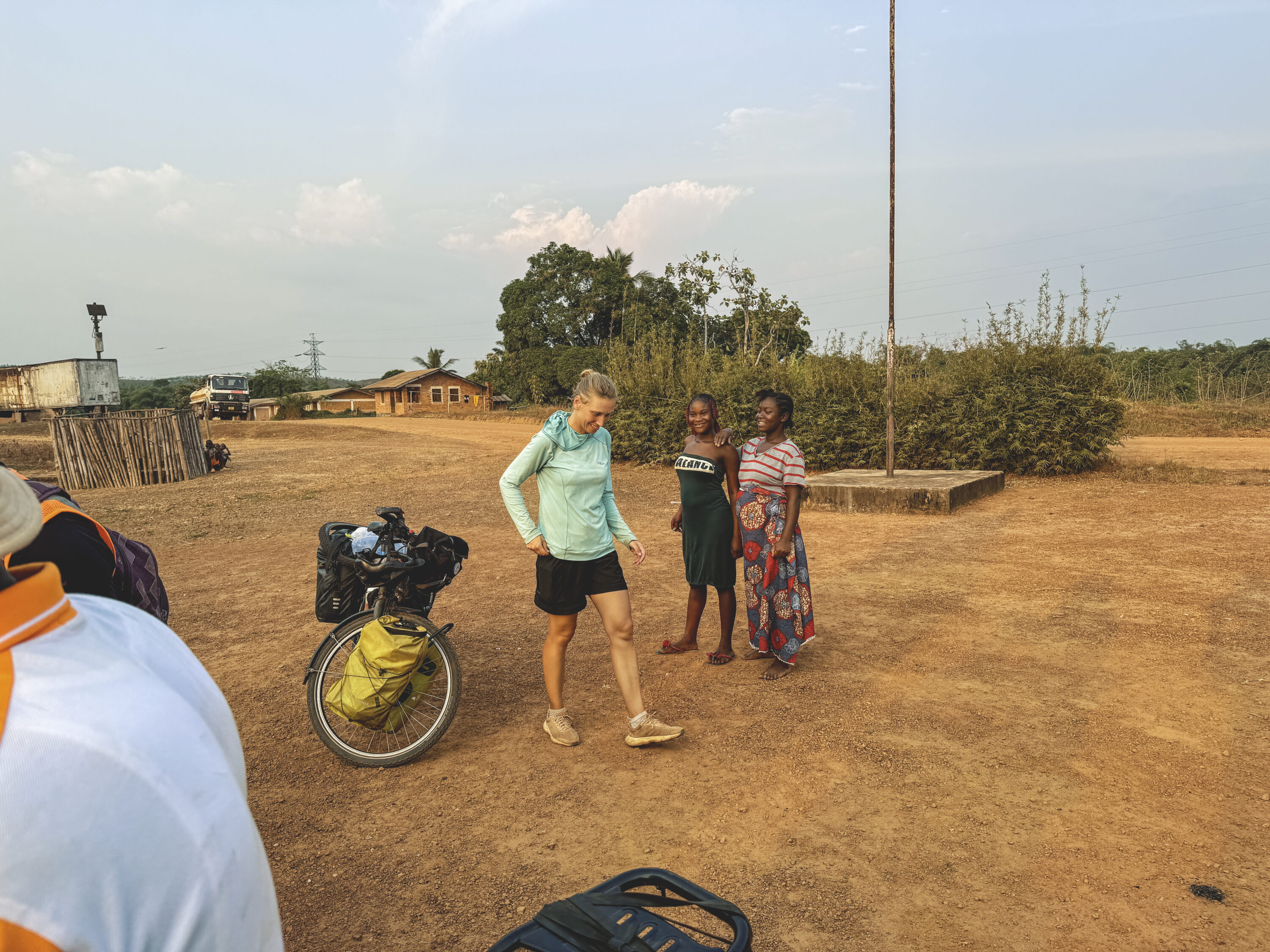
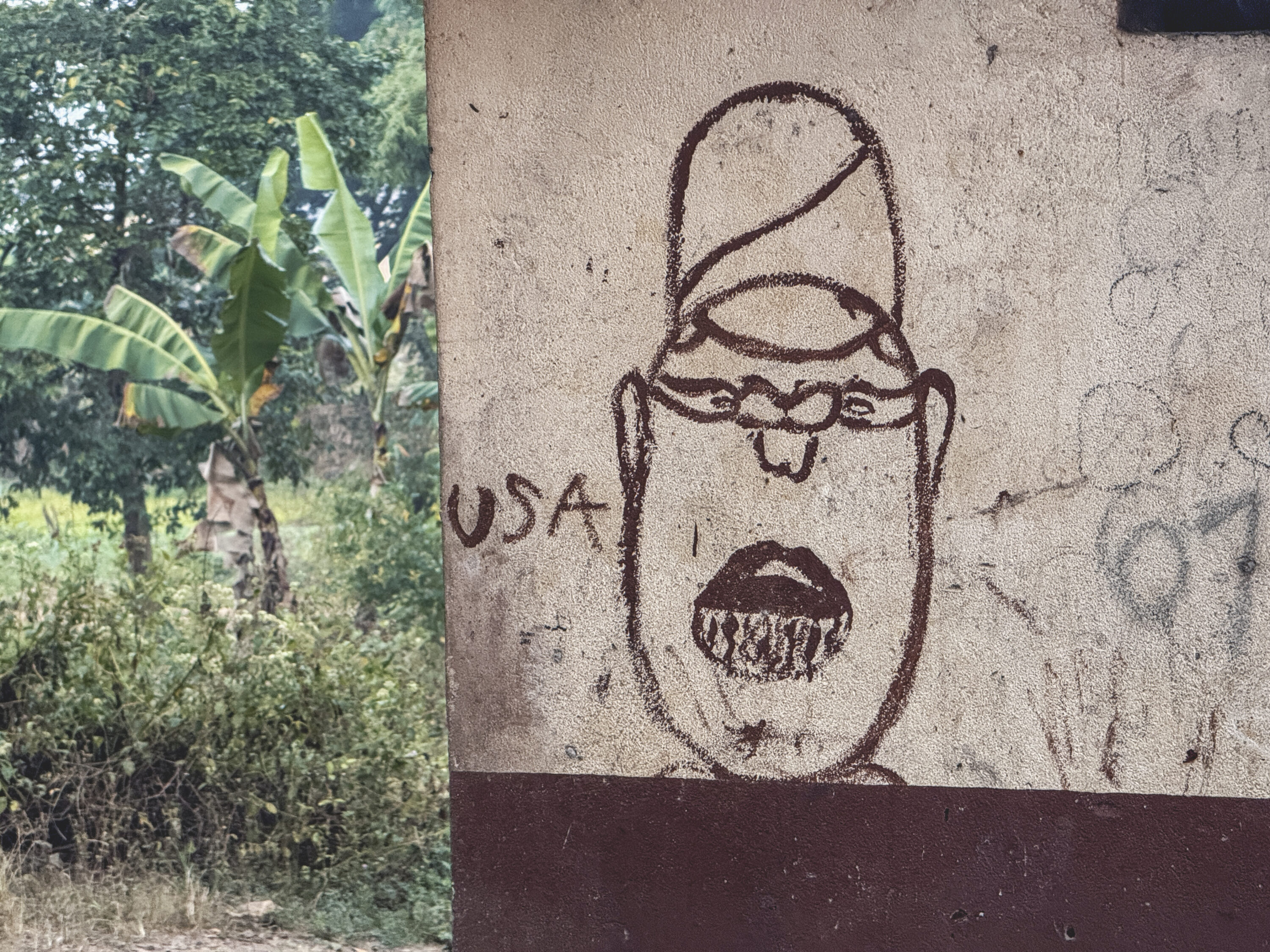
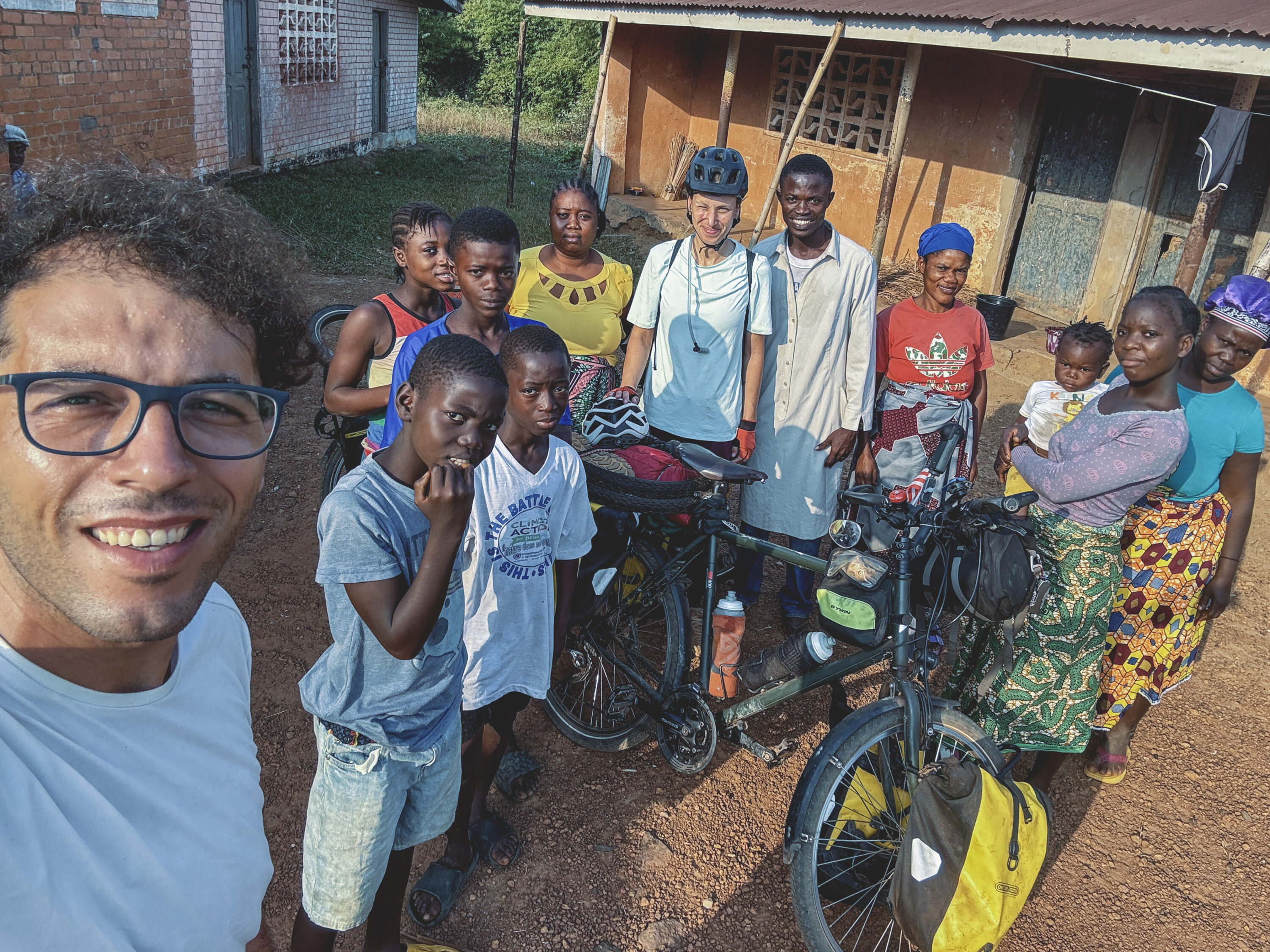
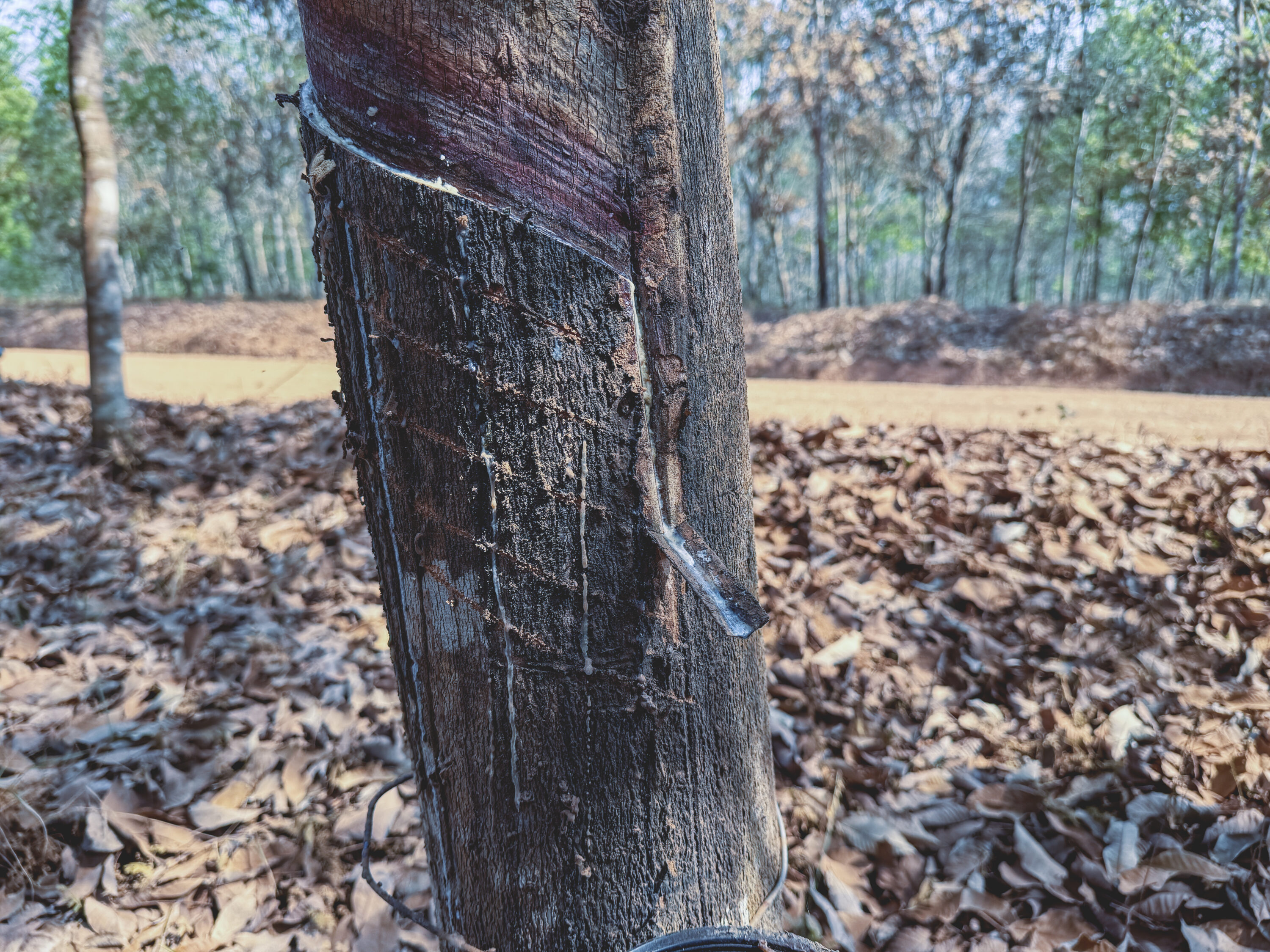
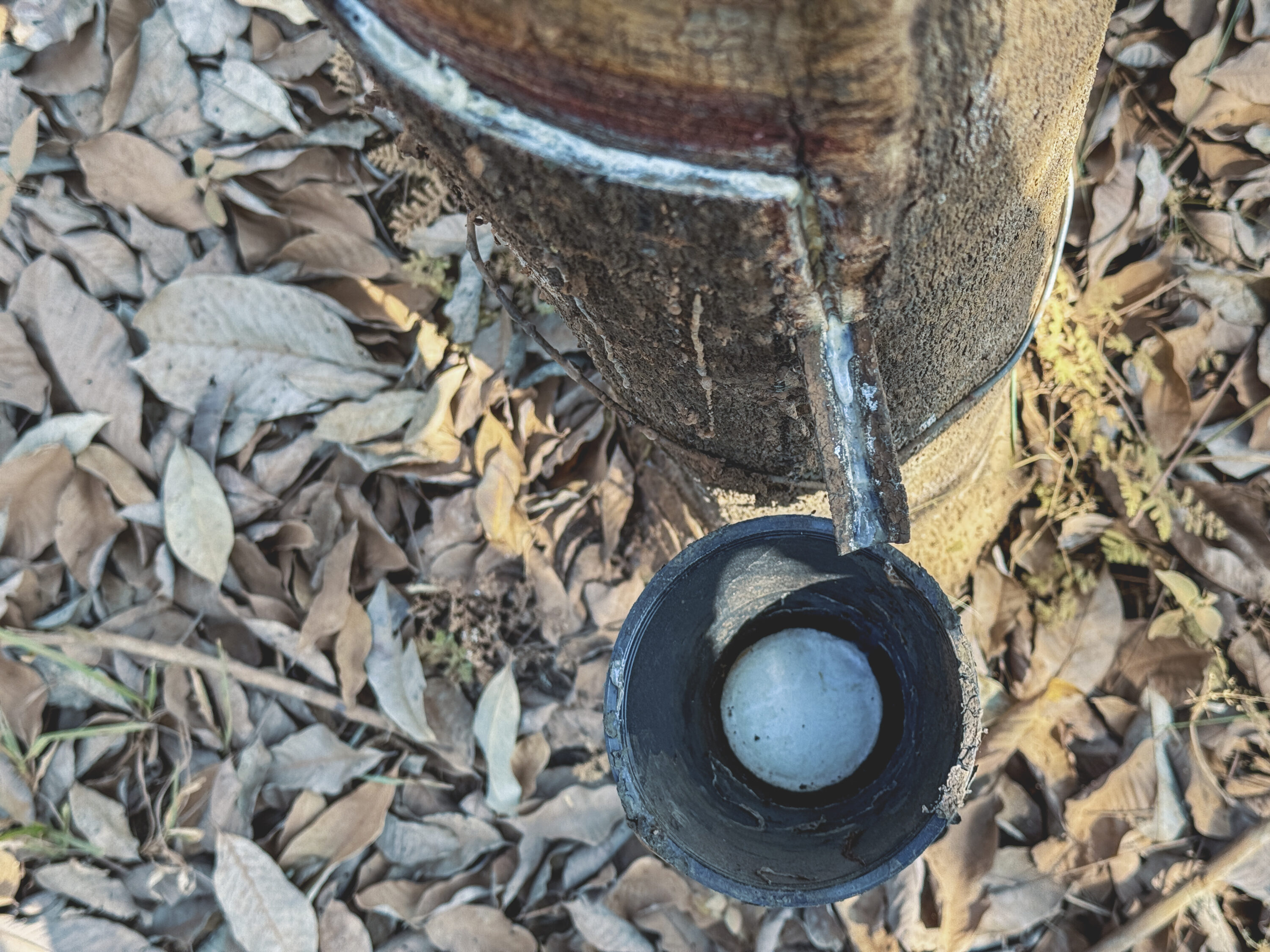
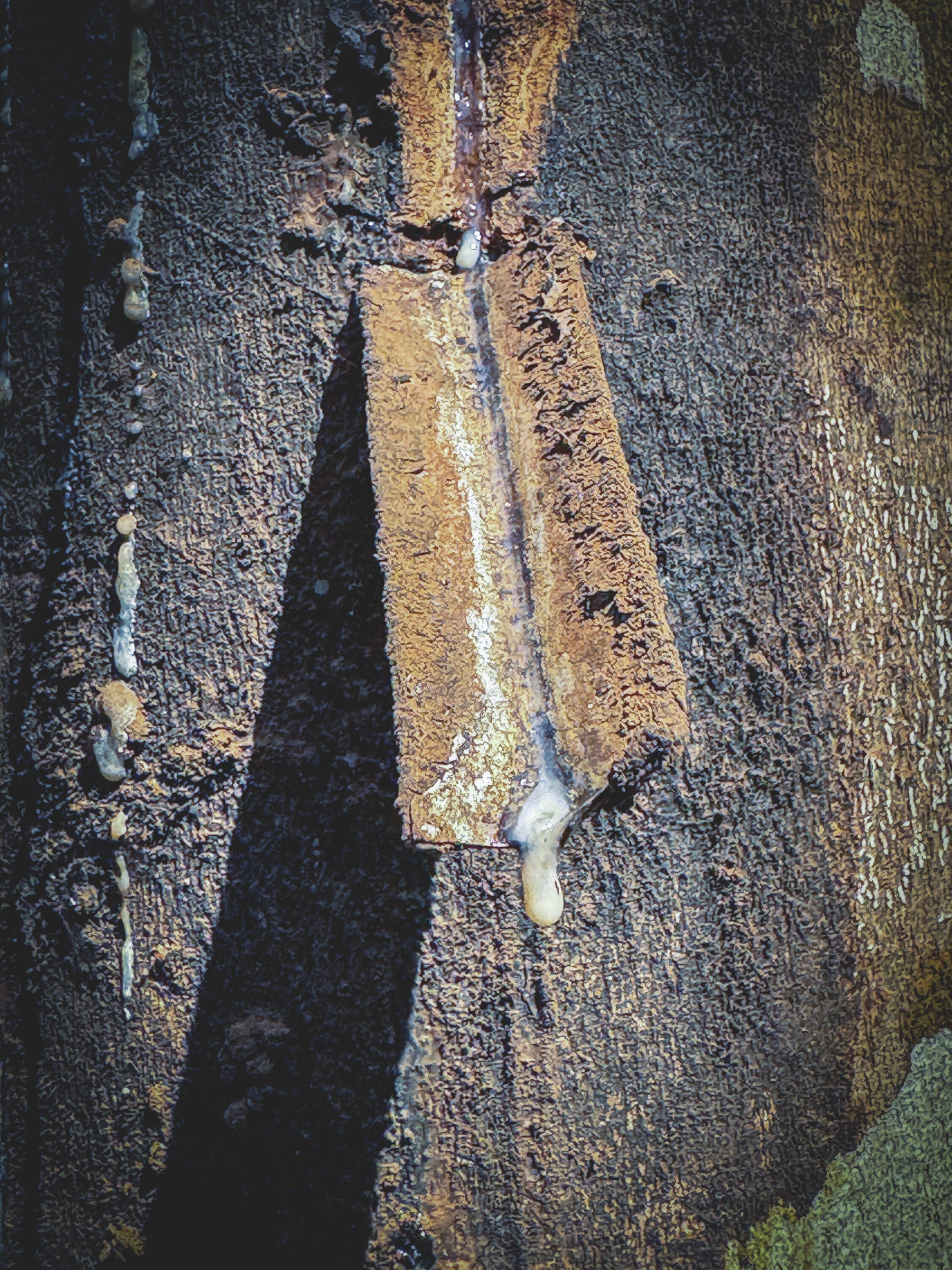
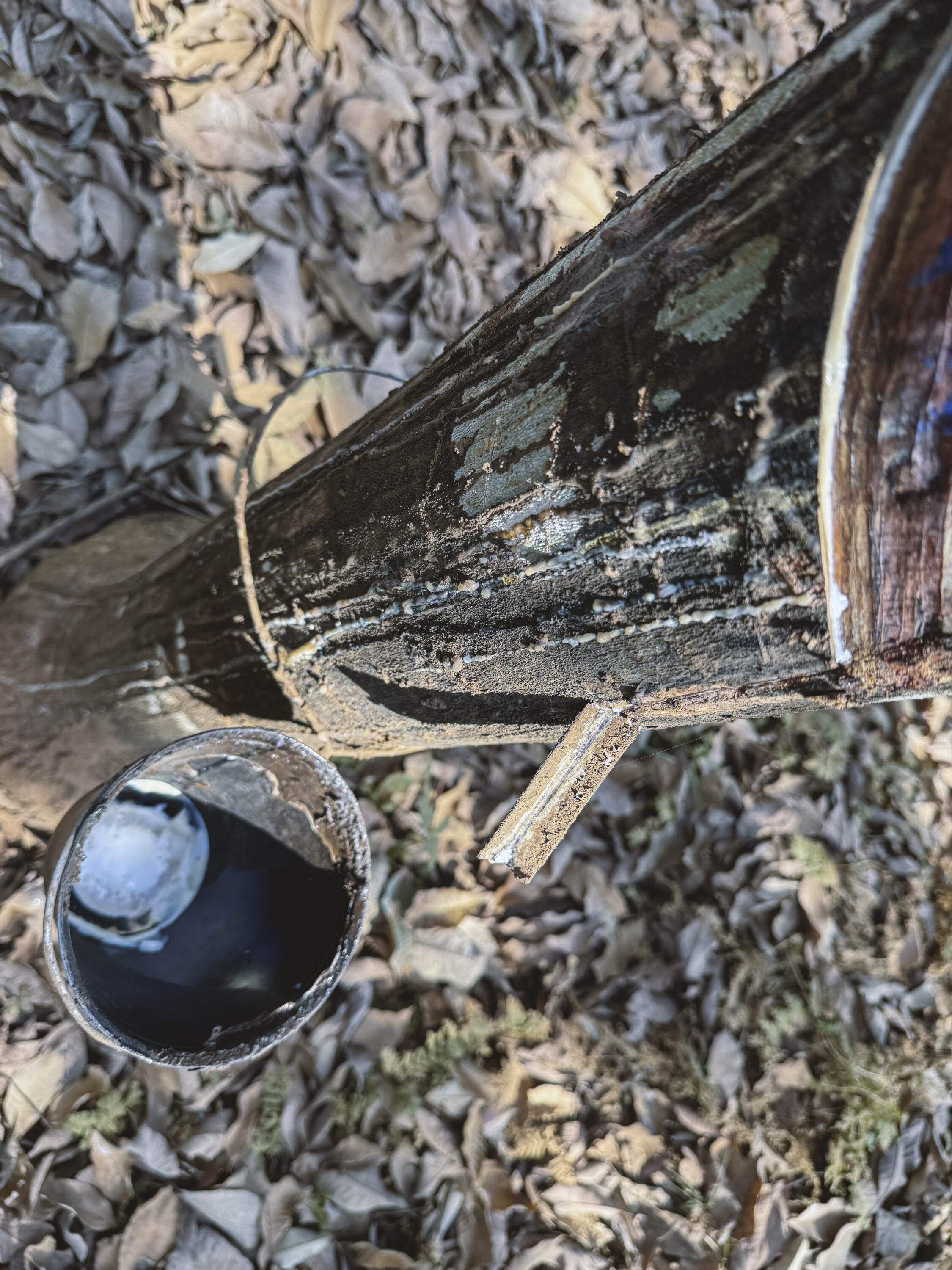
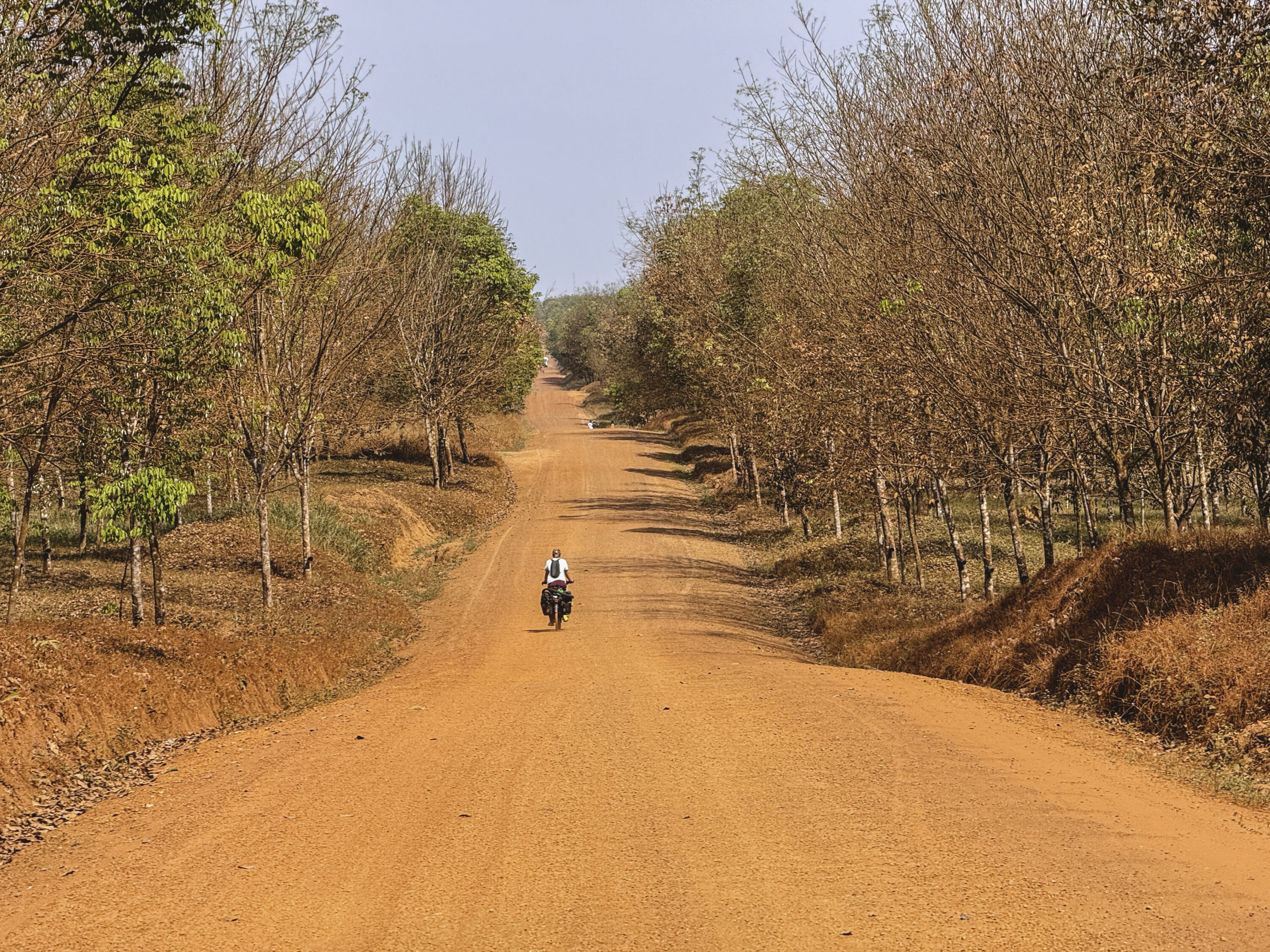

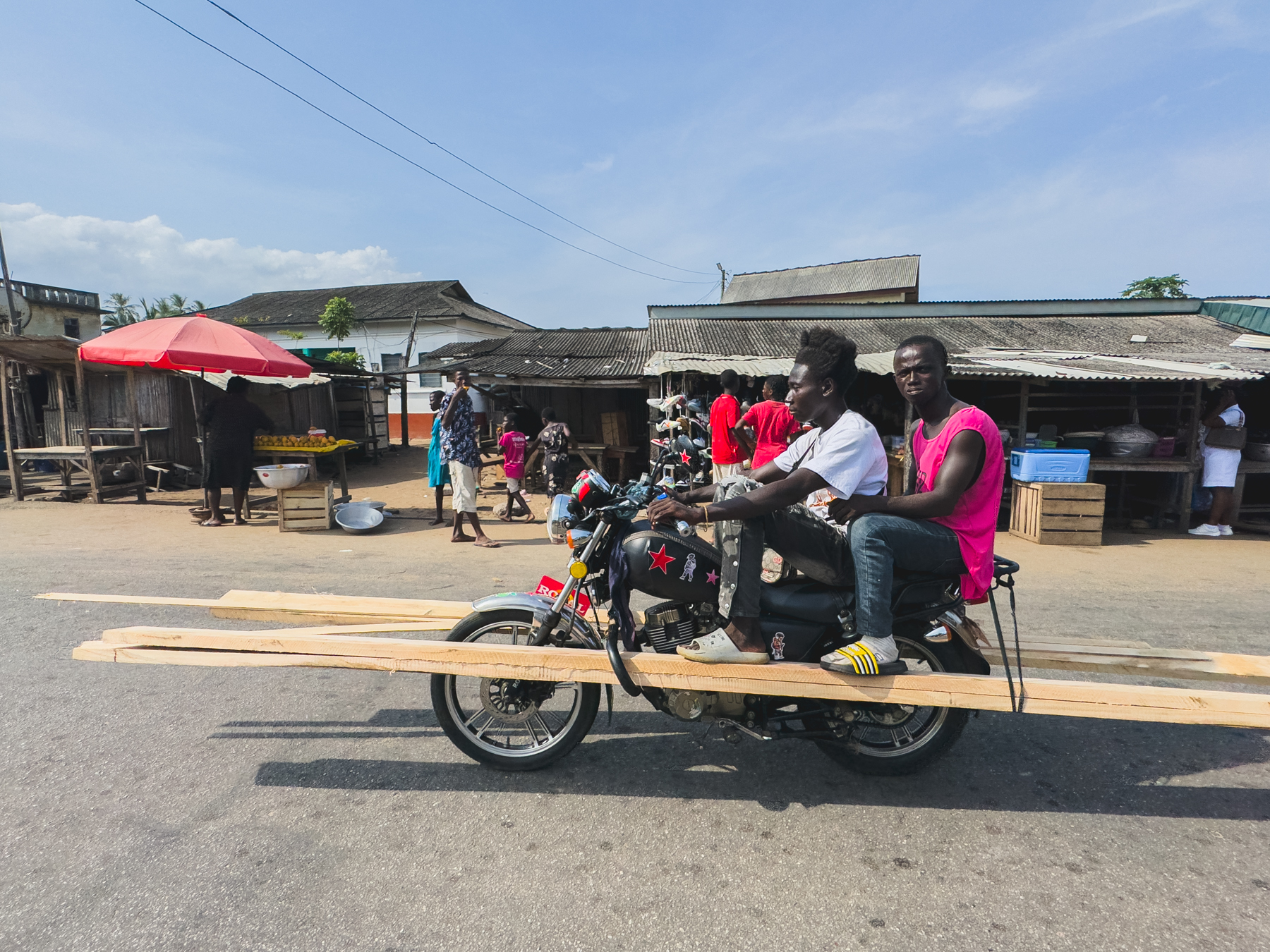

Leave a Reply